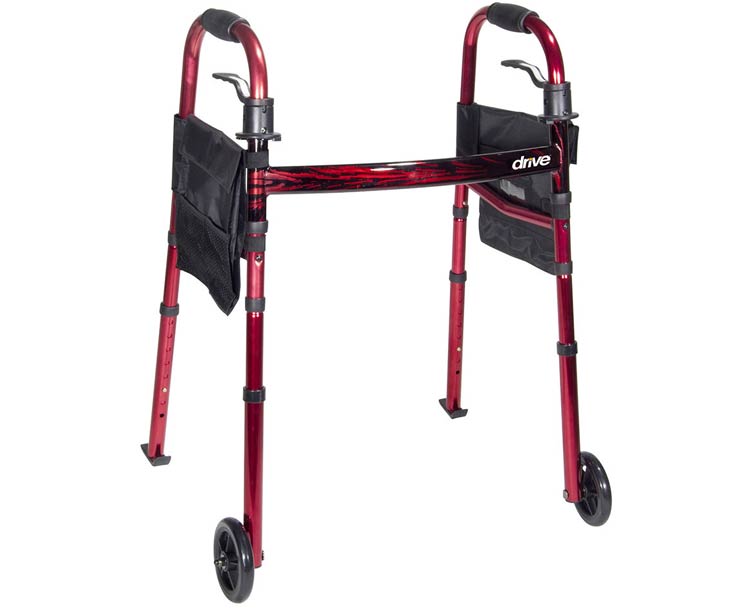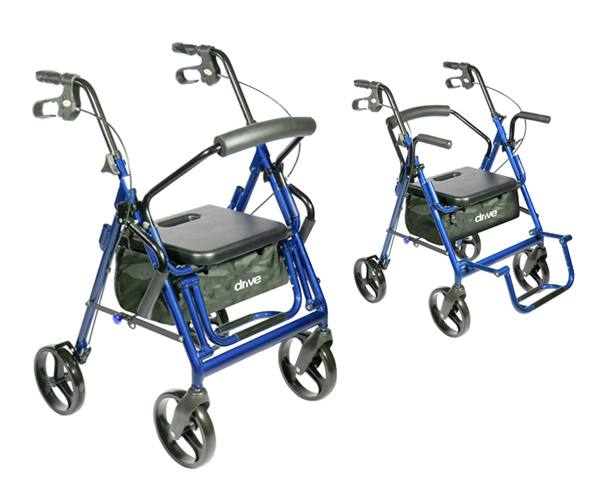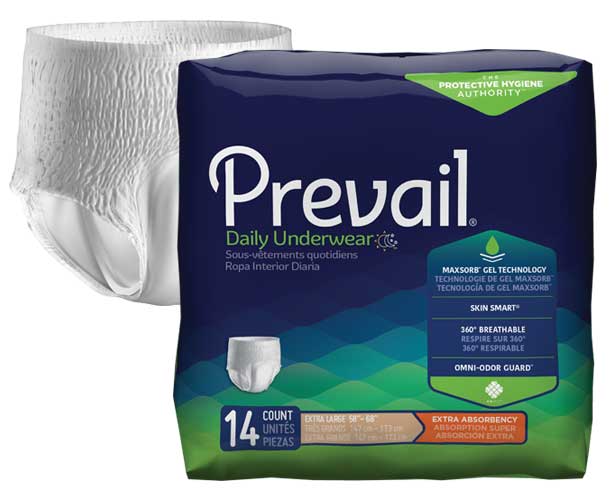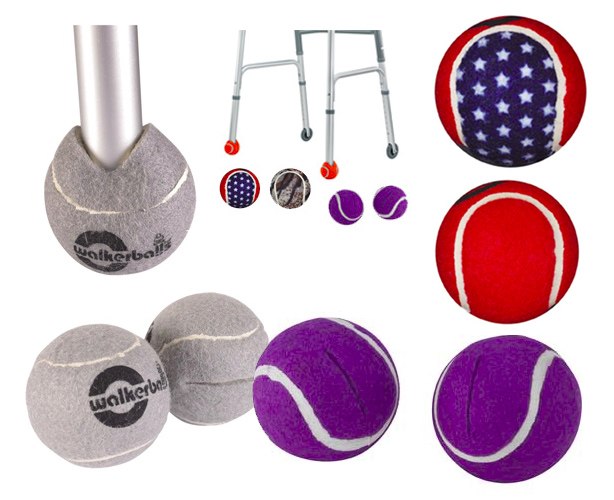
Call 1-631-753-8390 or Contact Us - We're Happy to Help!
Please choose a body region on the right for you to pin point the problem area of your body.

Shop by Condition

Shop by Brand
When it comes to mobility aids, choosing the right one can significantly impact your quality of life. Walkers are essential tools for individuals who require assistance with walking due to medical conditions, injuries, or age-related issues. One common dilemma people face is whether to opt for a walker with wheels or without wheels. In this article, we'll delve into the pros and cons of both options to help you make an informed decision about the best walker for your specific needs.
One of the most significant advantages of walkers with wheels is their maneuverability. The presence of wheels allows users to glide smoothly across various surfaces, making it easier to navigate tight spaces, turn corners, and move through crowded areas. This enhanced mobility can be particularly beneficial for those with limited strength or stamina.
Safety is paramount when it comes to mobility aids, and this is where walkers without wheels shine. They provide a high level of stability due to their four-point contact with the ground. This stability minimizes the risk of accidents, making them an excellent choice for those who are prone to falls or have balance issues.
Portability is a crucial factor for many individuals who need a walker. Walkers with wheels, or rollators , are generally heavier than their non-wheeled counterparts due to the additional components required for the wheels and brakes. While this extra weight can affect ease of transportation, it can also provide added stability when in use.
Non-wheeled walkers are typically lighter and easier to lift and transport, making them a better option for individuals who need to frequently fold and stow their walker in a car or on public transportation. If you require a walker for outings and travel, a lightweight model without wheels may be the more practical choice.
Consider the terrain and environment where you will be using your walker most frequently. Walkers with wheels are well-suited for indoor use, where smooth surfaces predominate.
However, if you frequently encounter uneven outdoor terrain or rough surfaces, a walker without wheels may be a better choice. Its four-legged design provides more stability on gravel paths, grassy lawns, and bumpy sidewalks.
Ultimately, the decision between a walker with wheels and one without often comes down to personal preference and comfort. Some users find that wheeled walkers offer a smoother and more comfortable walking experience, while others prefer the stability and simplicity of non-wheeled models.
The choice between a walker with wheels or without wheels depends on your individual circumstances and preferences. Walkers with wheels offer increased maneuverability but may sacrifice some stability, while non-wheeled walkers prioritize stability but require more effort to move. Consider factors such as your physical strength, the environments you'll encounter, and your personal comfort when making your decision. Consulting with a healthcare professional or physical therapist can also provide valuable guidance in selecting the right walker for your needs. Remember that the most important thing is to choose a walker that enhances your mobility and improves your overall quality of life.
| |
|---|
 Drive Medical Deluxe Folding Travel Walker with 5" Wheels |
 Duet Transport Wheelchair Chair Rollator Walker |
| |
|---|
 Prevail Extra Protective Underwear |
 5 in. Walker Wheels for Folding Walker |
 Walker Tennis Balls |
| Stay Connected! | |
|
|
|
Related Articles
Get $10 off your next order when you sign up to receive our email newsletter.*
Simply enter your email address below!
*Minimum order value of $100. Valid email address to qualify.







